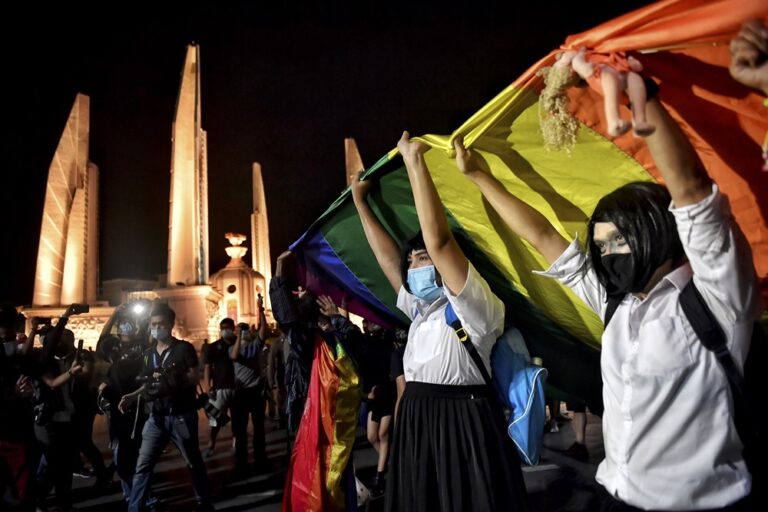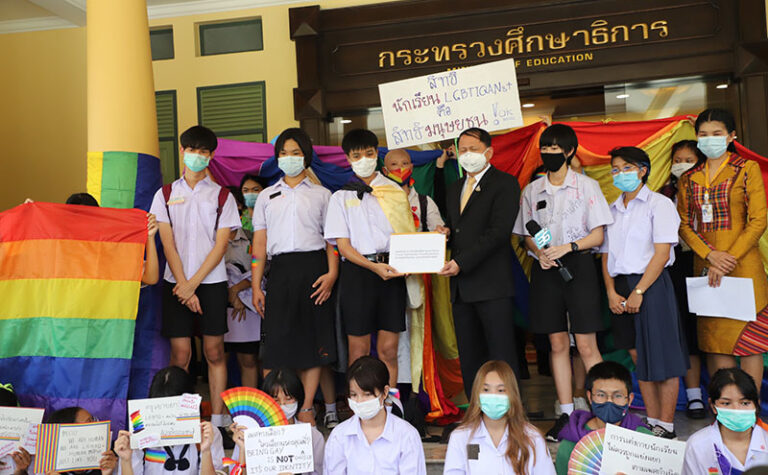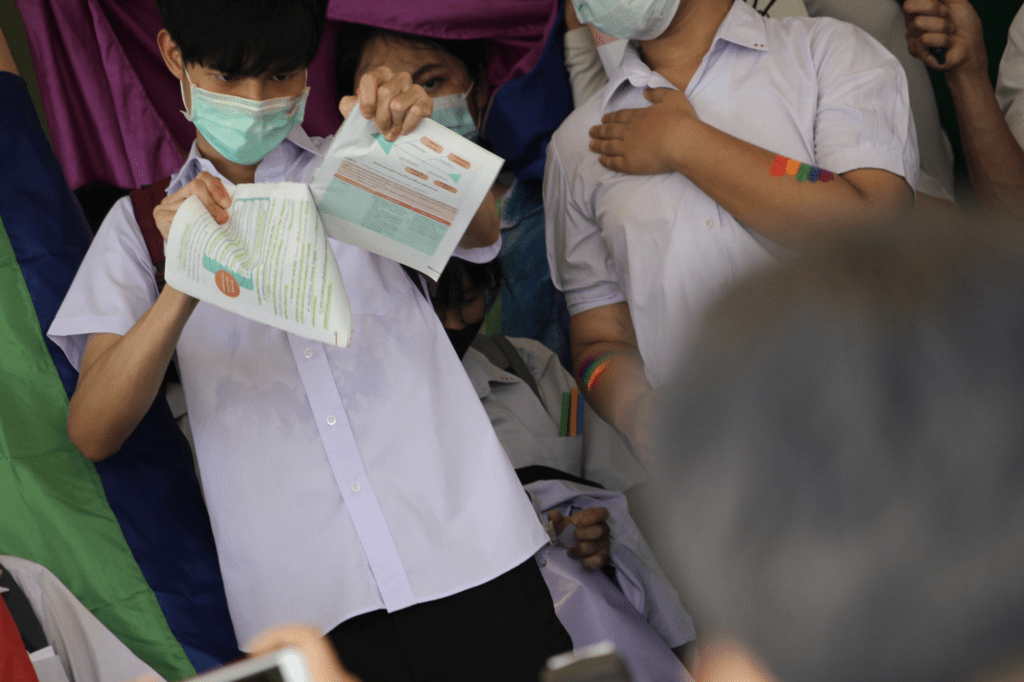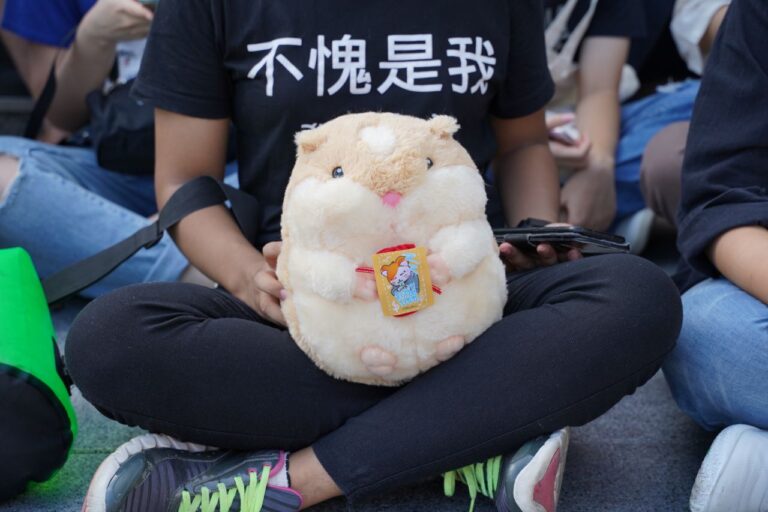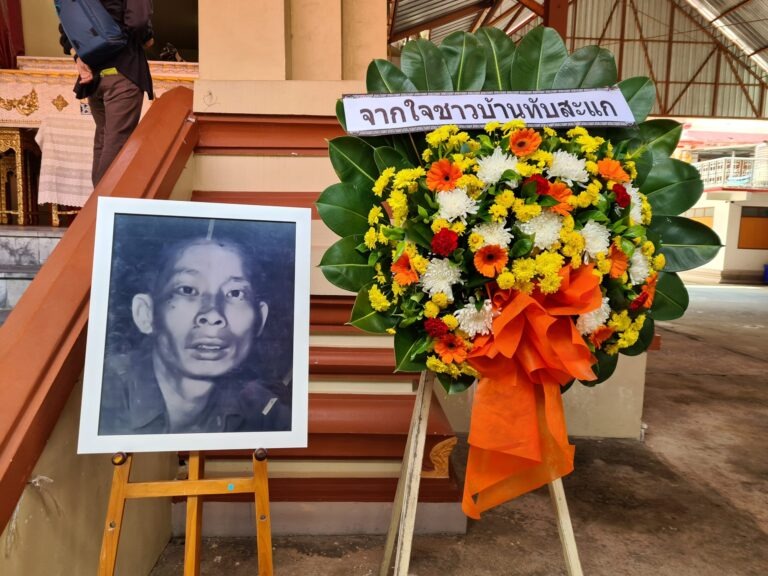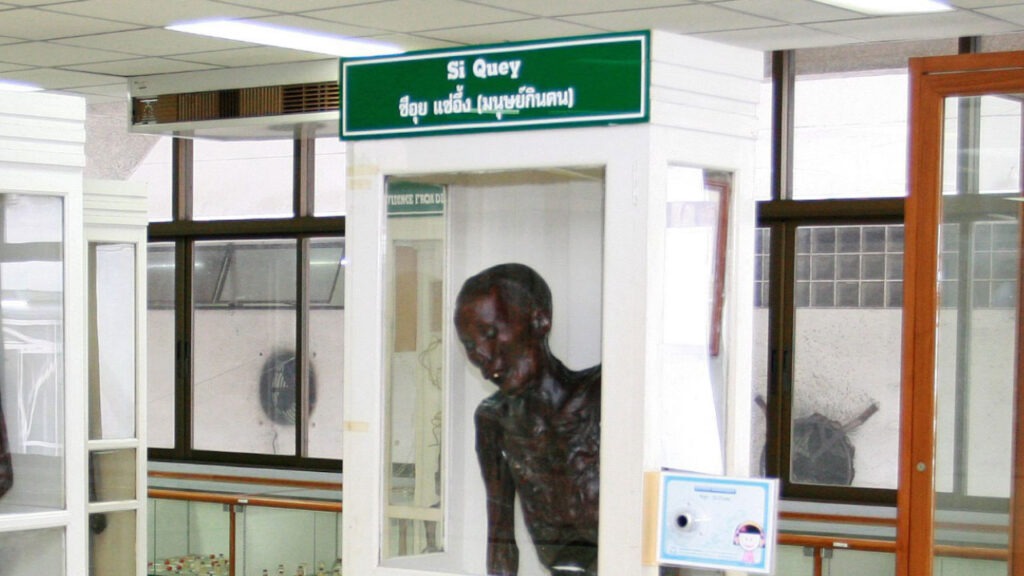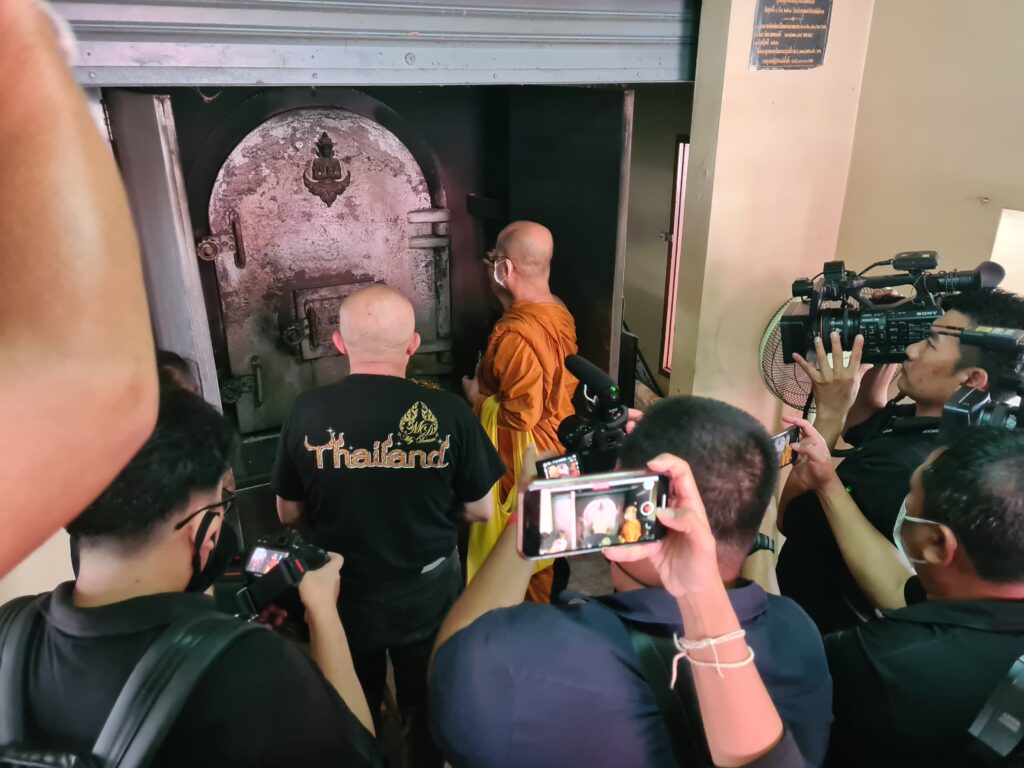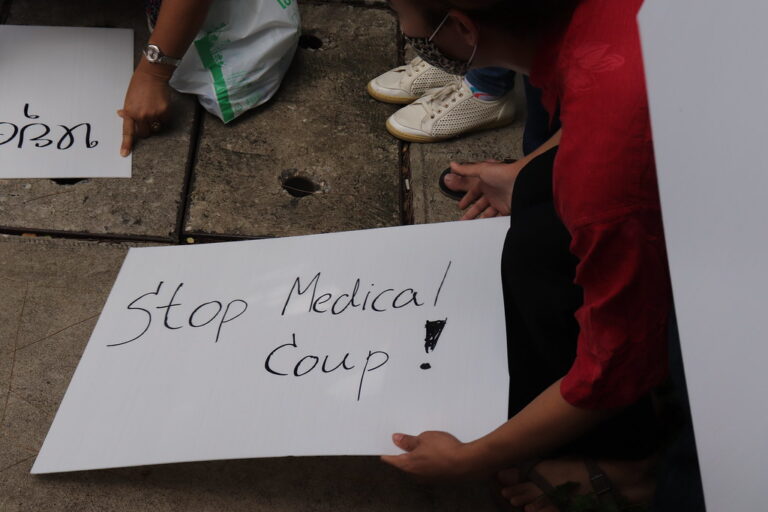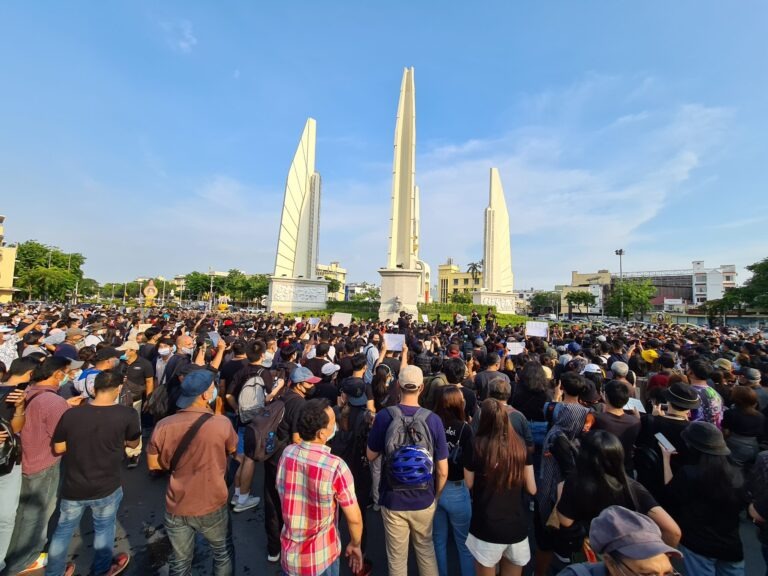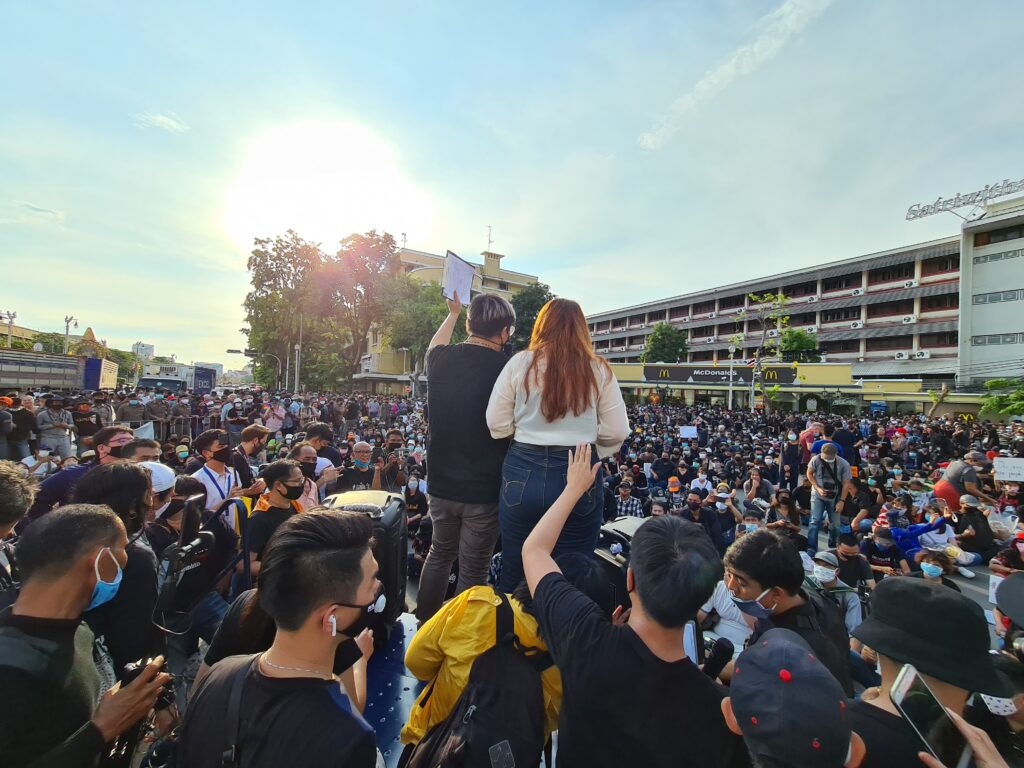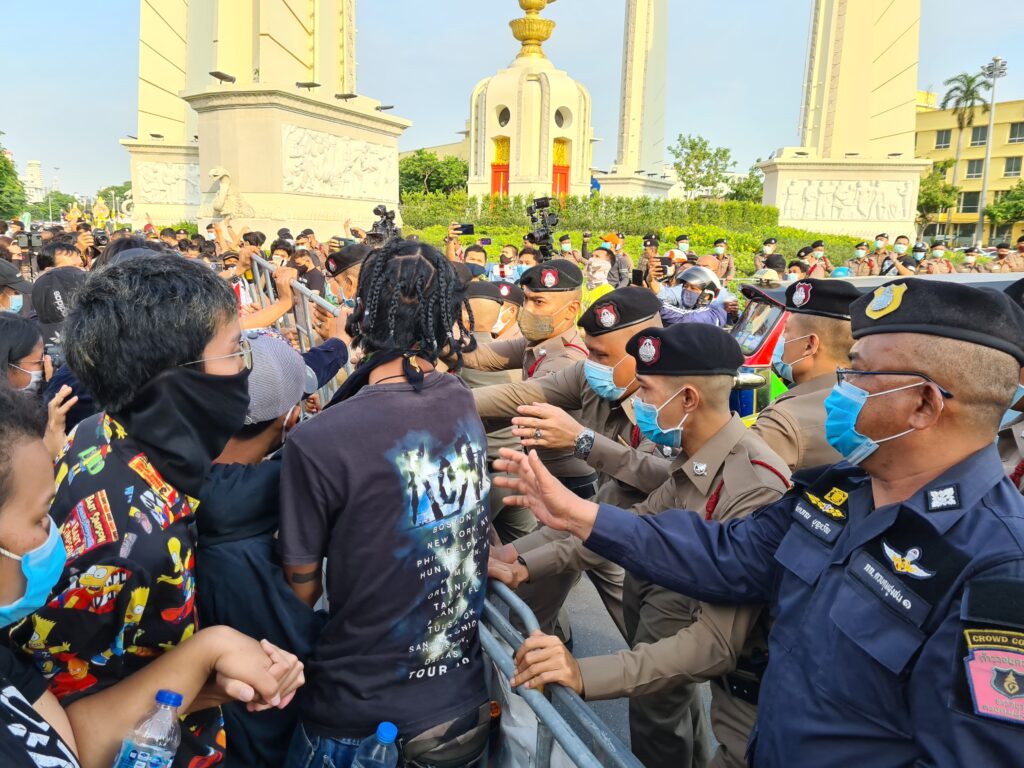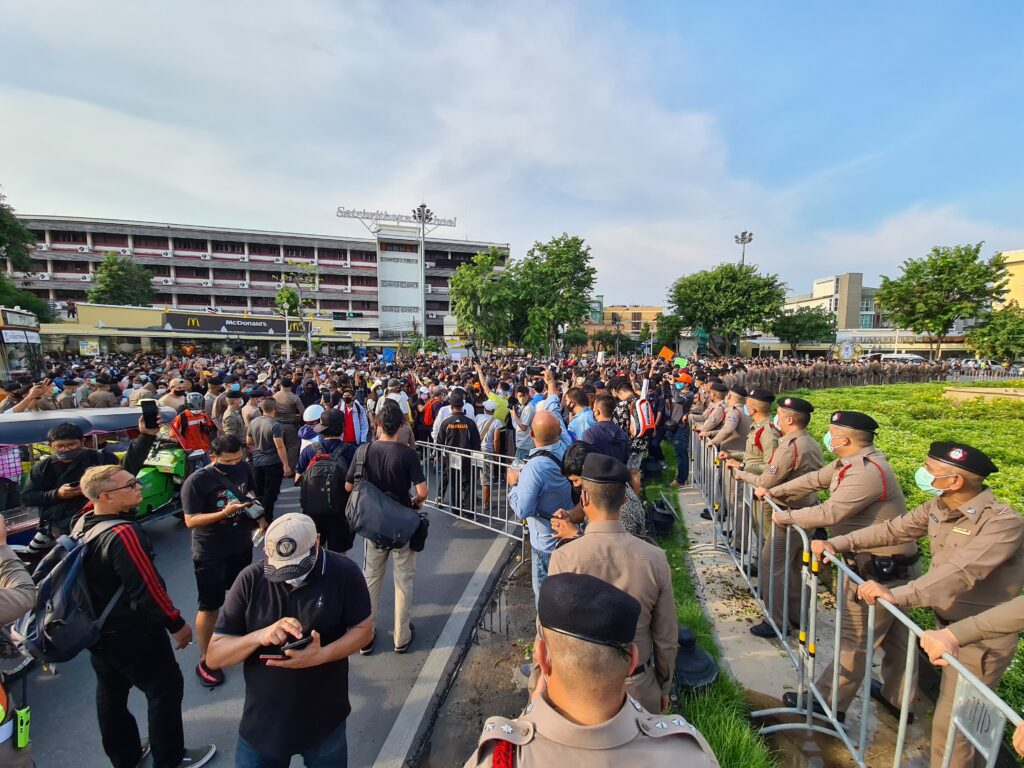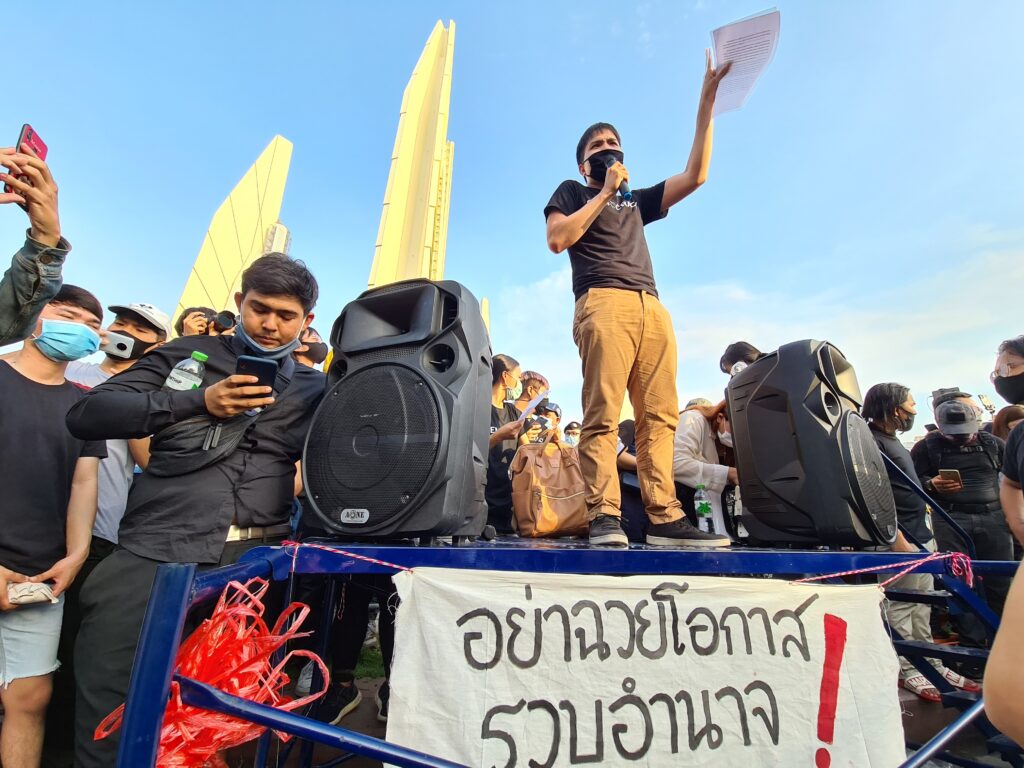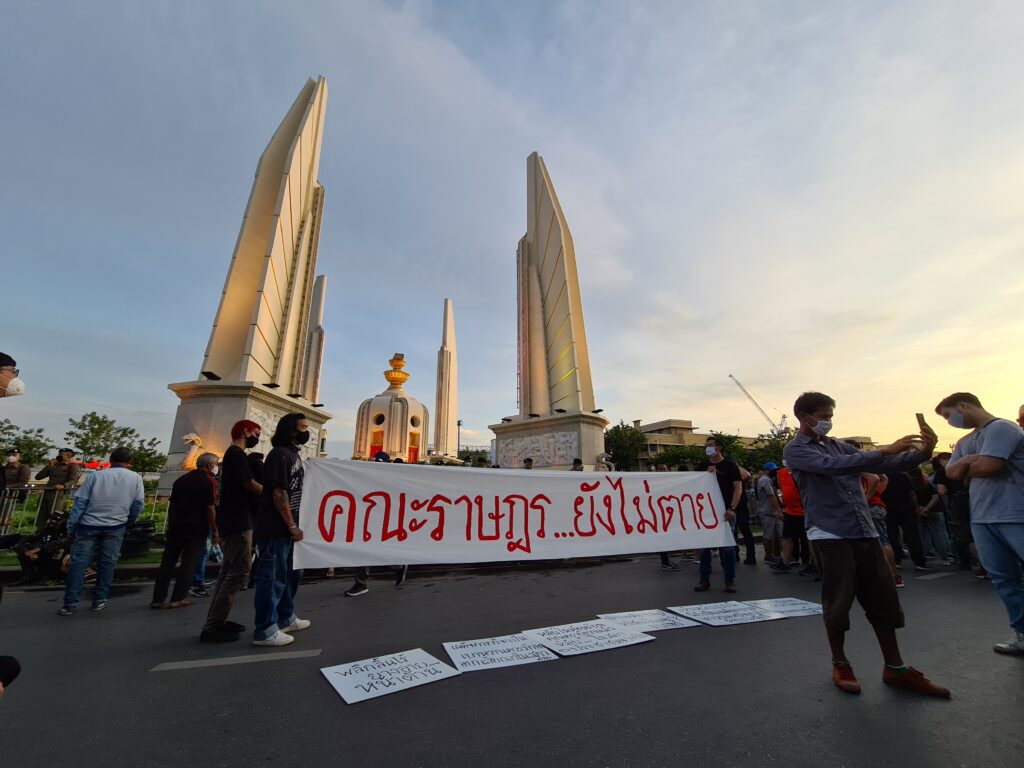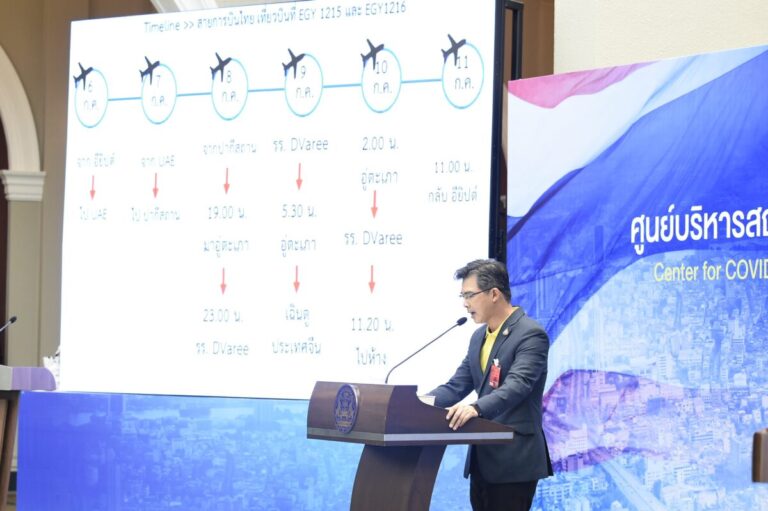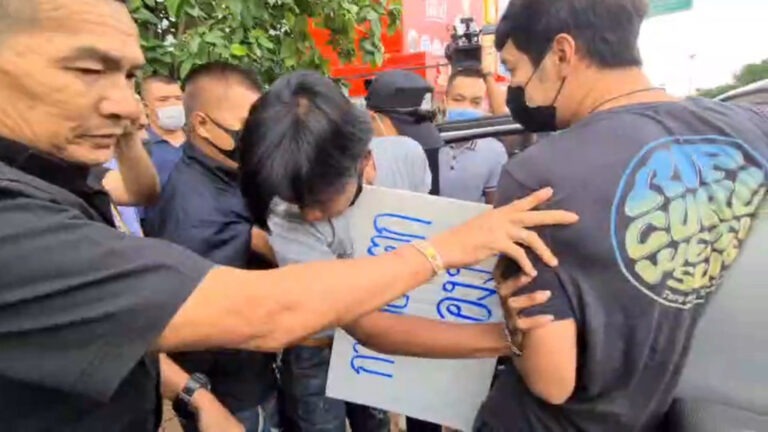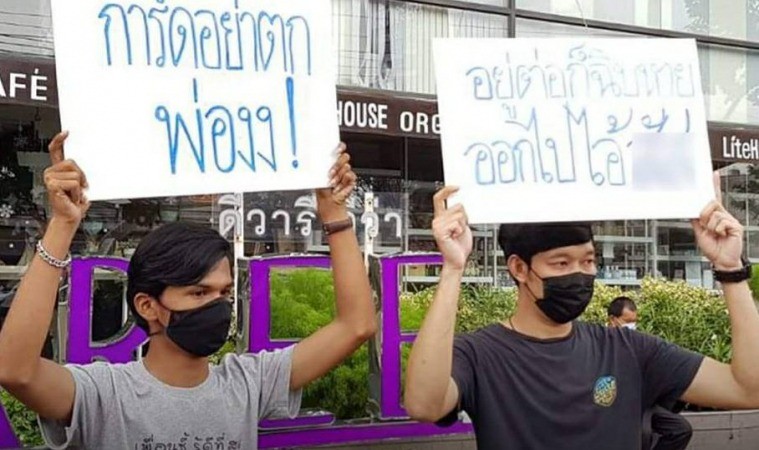THAILAND. Bangkok. Thai LGBT activists led a protest of all ages and genders in demanding the government to step down, echoing Free Youth’s protest and advocating for gender equality incompatible under the current dictatorship.
On 25 July, LGBT activists held a demonstration at the Democracy Monument to project Free Youth’s three demands: dissolution of the parliament, an end to state harassment, and a more democratic constitution. The demonstration consisted of entertaining activities such as dancing, a movie recital, and improvisation.
Various speakers took turns detailing problems created by the current administration such as appointments of unfit officials, pro-wealthy policies, government incompetence, double standards, missing activists, and the extension of the state of emergency act.
Besides the three main demands, they asked the government to put gender equality into its agenda by legalizing sex workers, amending the marriage laws, and abolishing conscription.
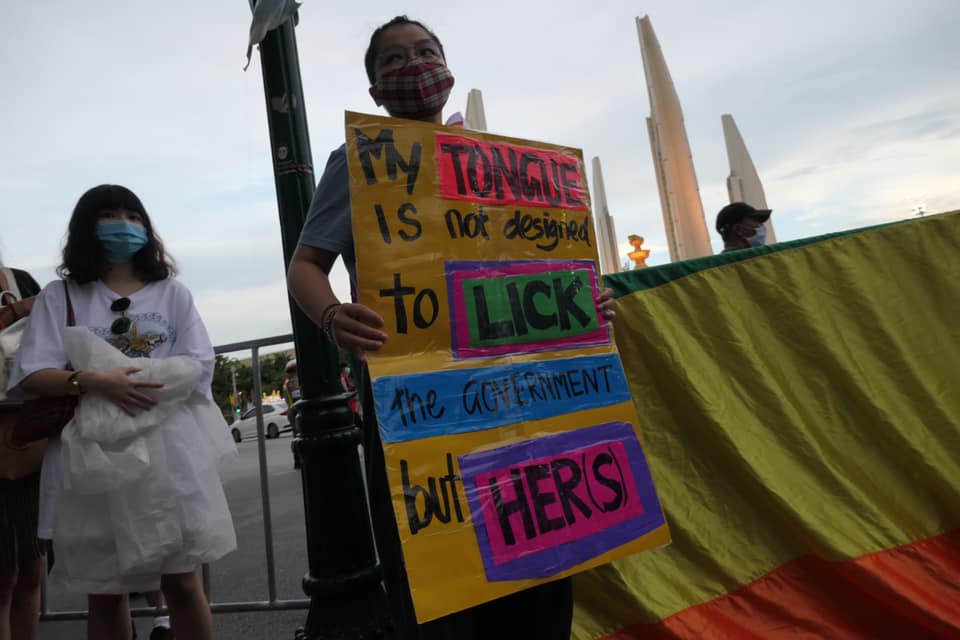
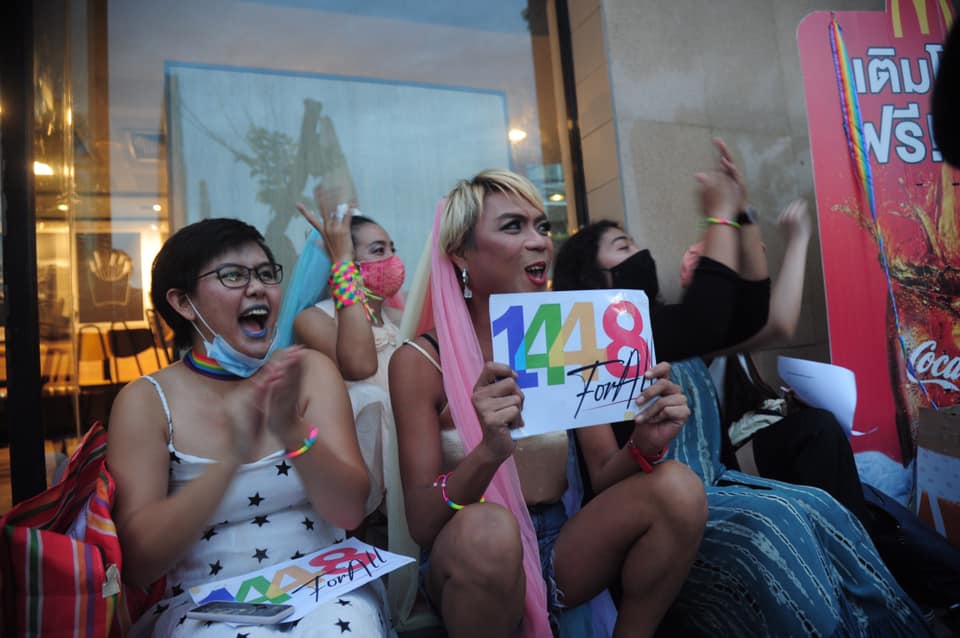
Civil Partnership Bill does not bring gender equality
Protesters showed their opposition against the Civil Partnership Bill. The bill was first introduced in 2013 by the Justice Ministry. After many revisions, the current cabinet members recently endorsed it in early July. The bill is controversial as the public believes it does not give same-sex couples equal rights as heterosexual couples.
According to the bill, two people of the same biological gender would be legally considered “civil partners” not “spouses” when married. The bill gives same-sex couples equal rights as heterosexual couples in terms of rights to manage shared assets and debts, rights to inheritance and succession, and rights to adopt a child together.
However, the bill is unclear if civil partners would receive state welfare as spouses receive. It also does not state anything about engagement. The bill faced a lot of criticism in the past in terms of unequal and unclear legal rights including rights to a partner’s medical consent, rights to partner’s social security funds, rights to spouses tax reduction program, and rights for a non-national partner to obtain a marriage visa. Many LGBT activists saw this bill as a tool government uses to consider the LGBT community as second-class citizens. It became one of the talking points of the protest.
The bill has been submitted to the parliament for consideration. It would go into law if the parliament approves it.
Amendment to existing marriage laws needed
While the protesters disagreed with the endorsement of the Civil Partnership Bill, they showed support for the amendment to marriage laws proposed by the Move Forward Party.
The amendment would change some terms of the existing marriage laws to create gender equality. “Husband and wife” would be replaced with “spouses.” “Man” and “woman” would be replaced with “person.” All spouses would have equal legal rights regardless of gender if these laws are amended. The Move Forward Party also proposed a raise of marriage age to 18 instead of 17.
LGBT activists believe this amendment would bring about gender equality, not the Civil Partnership Bill.
The amendment is up online for public opinions since early July. Over 54,000 people have expressed their thoughts.
Protesters proposed the abolition of conscription
In Thailand, serving in the army is listed as a duty for all males age over 21. One of the speakers suggested that it should be voluntary not an obligation as there are other ways to serve the country instead of being in the military.
In early June, the Move Forward Party proposed a Military Service Bill, which would abolish the required service and change it into a voluntary basis. The bill would allow state to recruit new personnel using education-based criteria instead of age-based. There would be a civilized standard training, welfares, and benefits. The bill also allows the government to pass the Conscription Decree when the country is under war.
The bill has been up online for public opinions.
Massive rainbow flag waved at Democracy Monument
Before the protesters left, they waved a massive LGBT flag in front of the monument while playing music and dancing. Leaders thanked everybody for coming before encouraging everyone to hang out afterward at Khaosan Road, famous for nightlife venues, to stimulate the economy.

